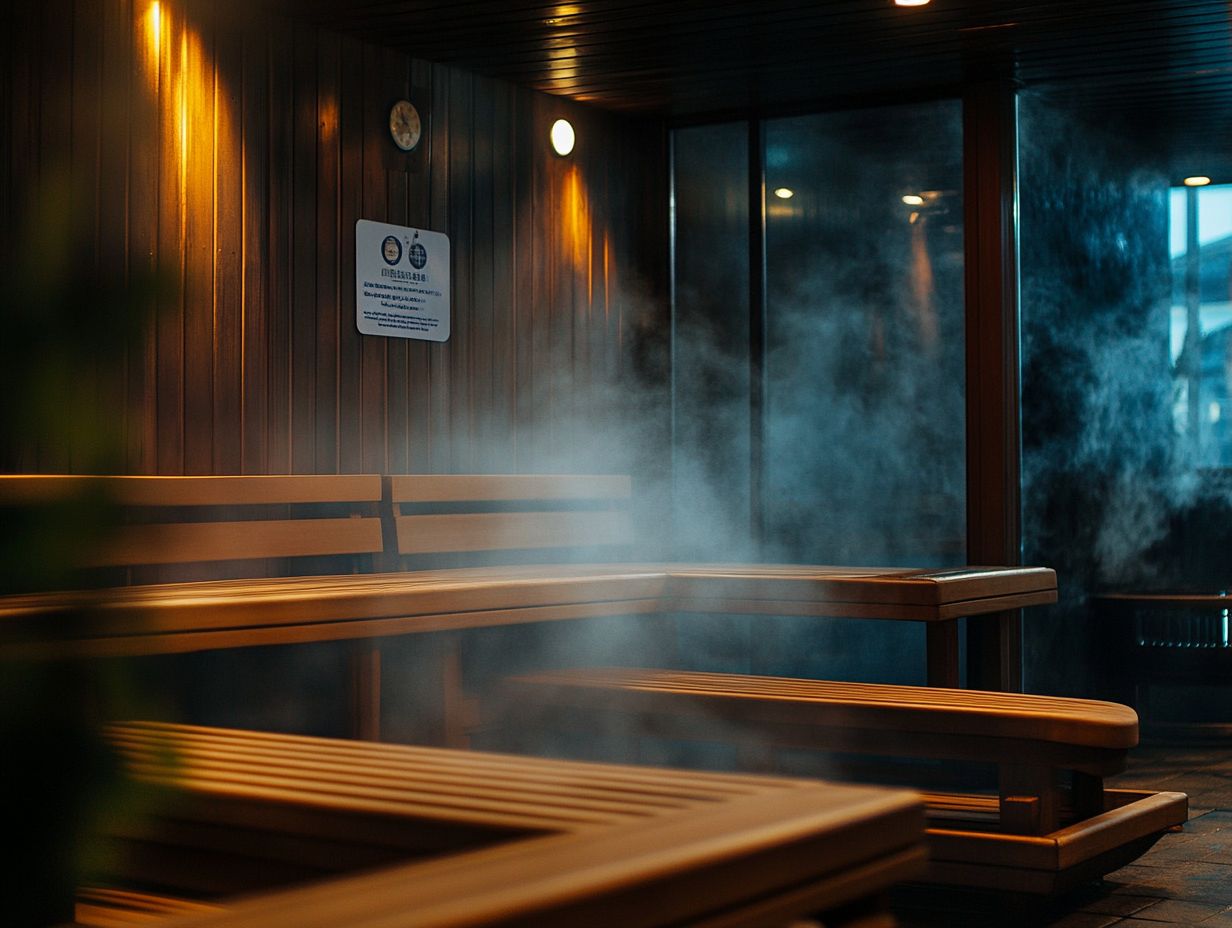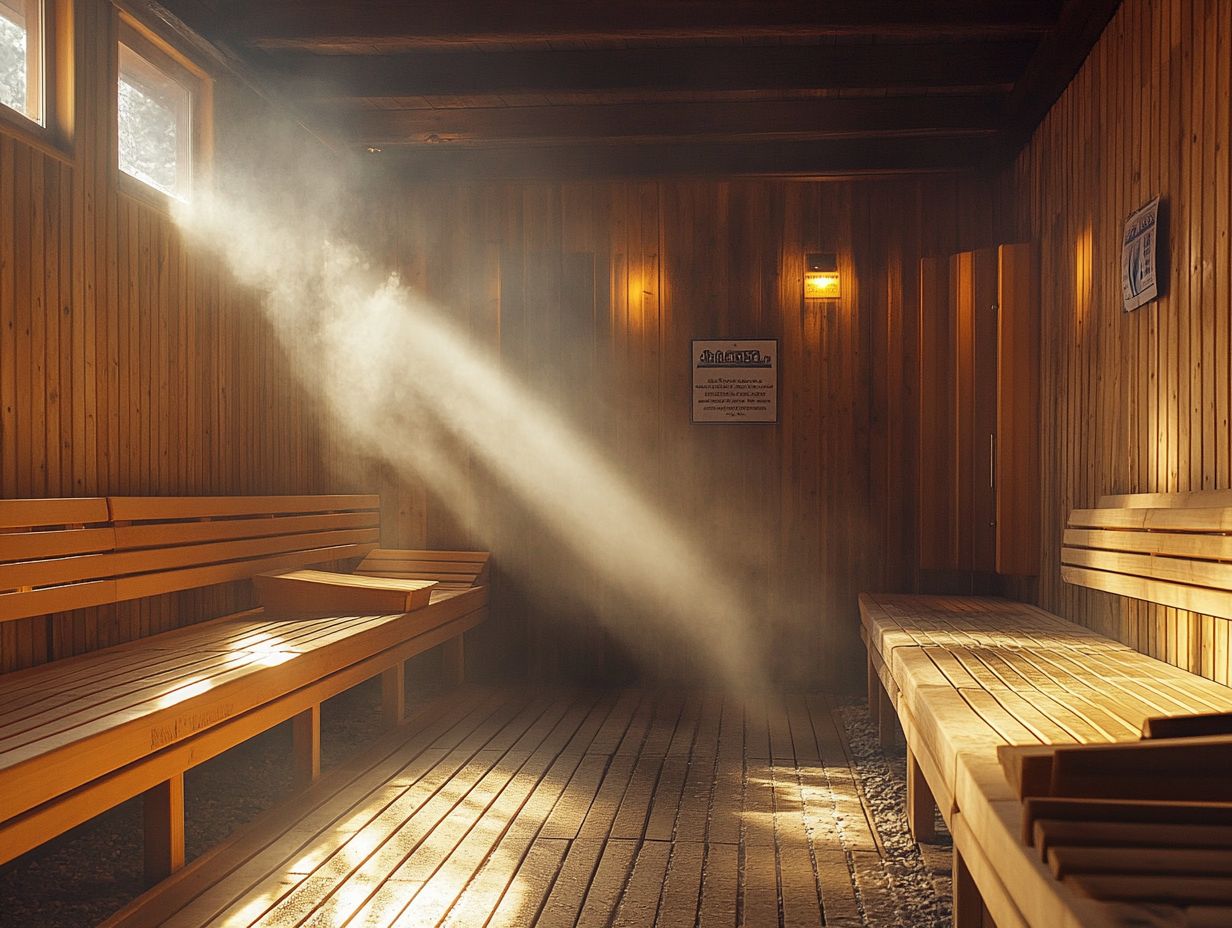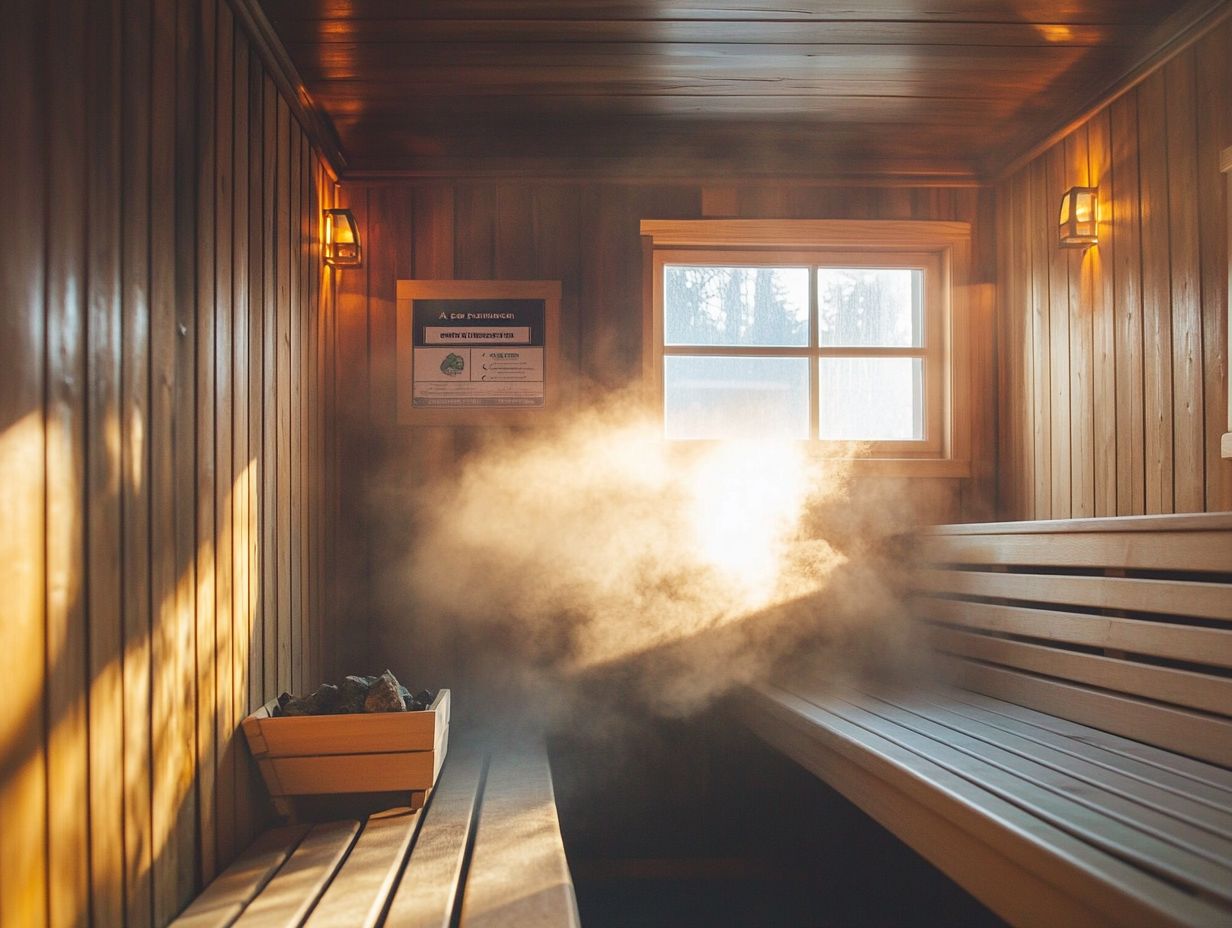What Should I Know About Sauna Licensing?
Sauna licensing is a vital yet frequently neglected component of operating a sauna business. Grasping its intricacies can significantly enhance safety and ensure adherence to local regulations.
This article delves into the essentials of sauna licensing, highlighting its importance, outlining the requirements for obtaining a license, exploring the various types available, and detailing the renewal process. It also addresses common questions to help you navigate this process with confidence and ease.
Engage with this information to protect and elevate your sauna venture.
Contents
- Key Takeaways:
- Understanding Sauna Licensing
- Why is Sauna Licensing Important?
- Requirements for Obtaining a Sauna License
- Types of Sauna Licenses
- Renewing and Maintaining a Sauna License
- Common Questions about Sauna Licensing
- FAQs and Answers
- Frequently Asked Questions
- What should I know about sauna licensing in my area?
- Do I need a license to open a sauna business?
- What are the steps to obtaining a sauna license?
- How can I ensure I meet all the necessary requirements for a sauna license?
- Are there any specific health and safety regulations for sauna businesses?
- What happens if I operate a sauna business without a license?
Key Takeaways:

- Sauna licensing is the process of obtaining a permit to legally operate a sauna business.
- It is important to obtain a sauna license to ensure the safety of customers and comply with regulations.
- To obtain a sauna license, one must complete necessary steps and provide required documentation, and renew the license periodically.
Understanding Sauna Licensing
Understanding sauna licensing is key to your sauna journey! Securing the proper licenses ensures your sauna meets local building codes and safety regulations, maximizing the health benefits while minimizing legal pitfalls.
Familiarity with the licensing process will enable you to evaluate every aspect of your sauna project, ensuring critical elements like ventilation and accessibility are thoughtfully addressed.
What is Sauna Licensing?
Sauna licensing involves the necessary permissions from local authorities to install and operate a sauna, whether it’s a wood-burning, electric, or infrared model.
These regulations often require adherence to local zoning laws, health department standards, and specific building codes designed to ensure safety and functionality. Compliance protects users and enhances the overall experience by ensuring your sauna is properly equipped and maintained.
Securing the right licensing significantly amplifies the health benefits of sauna use, from boosting cardiovascular function to aiding detoxification and promoting relaxation. By fulfilling these legal obligations, you create a safer environment that encourages more people to embrace the holistic advantages that saunas provide.
Why is Sauna Licensing Important?
Sauna licensing is essential because it guarantees adherence to safety measures and building codes. This not only ensures a safe environment but also amplifies the numerous health benefits that come with regular sauna use.
Ensuring Safety and Compliance
Ensuring safety and compliance involves careful commitment to local building codes and essential safety measures, all aimed at providing a positive sauna experience.
This includes implementing appropriate ventilation systems that foster healthy air circulation while keeping humidity levels in check because nobody wants mold crashing the party.
Proper electrical requirements are crucial; ensuring your circuits are rated for the sauna’s power needs prevents potential electrical hazards and supports consistent heating performance.
Don’t overlook plumbing; having proper drain systems in place prevents water accumulation, enhancing your experience by maintaining a clean and inviting environment. By being meticulous about these parameters, you significantly elevate both safety and enjoyment when using your sauna.
Requirements for Obtaining a Sauna License

Securing a sauna license demands meticulous planning and careful consideration. You’ll need to gather specific documentation that clearly demonstrates your compliance with local building codes and regulations.
Dive into the world of sauna licensing today and unlock the full potential of your sauna business!
Steps and Documentation Needed
To successfully acquire a sauna license, you need to follow a specific set of steps and gather essential documentation, including proof of meeting electrical requirements and compliance with local regulations.
Start by familiarizing yourself with the local health and safety codes. These can vary significantly from one jurisdiction to another. Prepare the necessary documentation, such as a floor plan of the sauna, details of the intended electrical setup, and a business plan if your sauna is for commercial use. Each of these components not only shows your compliance but also demonstrates your preparedness for safe and effective operation.
Obtaining the necessary electrical permits is crucial. This ensures that all installations meet safety standards and prevents potential hazards from improper wiring or insufficient power supplies.
Types of Sauna Licenses
There are several types of sauna licenses, each accompanied by distinct classifications and regulations concerning sauna installation. These can differ significantly depending on the heating source you choose whether it s wood-burning, electric, or infrared.
Understanding these nuances is essential for ensuring compliance and making informed decisions about your sauna setup.
Different Classifications and Regulations
Understanding the various classifications and regulations of sauna licenses is crucial. They dictate the requirements for different sauna types, including wood-burning, electric, and infrared models.
These regulations vary significantly depending on the sauna type. Specific building codes outline essential safety standards, fire regulations, and electrical requirements. For example, wood-burning saunas might require additional permits due to heightened fire risks, while electric sauna installations must adhere to local electrical codes to ensure safe operation.
Infrared saunas, often viewed as simpler, still face scrutiny regarding health regulations. It’s vital for sauna owners to grasp these classifications to avoid legal pitfalls and ensure their setups comply with safety standards. Additionally, understanding sauna safety regarding alcohol is crucial. Ignorance could lead to fines or the revocation of licenses.
Renewing and Maintaining a Sauna License
Renewing and maintaining a sauna license is an important task that requires your attention to detail. Keep a close eye on expiration dates and ensure that all relevant documentation is updated to meet local regulations.
This proactive approach safeguards your investment and ensures a seamless operation that complies with the law.
Expiration and Renewal Process

The expiration and renewal process of your sauna license demands meticulous attention to documentation and strict adherence to local regulations. This careful management helps you sidestep potential legal complications.
Understand the specific requirements outlined by regulatory bodies. This knowledge will enable you to submit all necessary paperwork on time. Start by gathering all relevant documents, including previous licenses, inspection reports, and proof of insurance.
Next, review local guidelines to pinpoint any changes since your last renewal. Maintaining a comprehensive filing system will streamline this process, making it easier for you to track deadlines and ensure nothing slips through the cracks.
By submitting your application well in advance of the expiration date, you can effectively reduce the risks associated with delays or overlooked compliance requirements.
Common Questions about Sauna Licensing
When it comes to sauna licensing, you might have common questions about health benefits, safety measures, and the specific steps required to comply with local regulations.
It s essential to have clarity on these aspects to ensure a safe and beneficial experience.
Don t wait until the last minute! Start your sauna licensing journey today or contact local authorities for more information.
FAQs and Answers
Curious about sauna licensing? This section covers common questions about health benefits and safety compliance.
Understanding sauna regulations is crucial. You need to know the permissions required for legal usage.
Potential sauna owners often seek information about the benefits of regular use. These include improved heart health and better relaxation.
Tackling concerns about maintenance, energy use, and safety can significantly enrich your knowledge whether you’re an enthusiast or a business owner. Providing comprehensive answers can ease common worries and enable you to make smart choices.
Watch this video to learn more about sauna licensing.
Frequently Asked Questions
What should I know about sauna licensing in my area?
Did you know that sauna licensing rules change depending on where you live? It’s vital to know the specifics for your area.
Do I need a license to open a sauna business?

In most cases, yes. Most states and cities require a license to operate a sauna business, even if it’s a small, home-based operation.
What are the steps to obtaining a sauna license?
- Fill out an application.
- Provide proof of insurance.
- Obtain approval from health authorities.
- Pay a fee.
How can I ensure I meet all the necessary requirements for a sauna license?
The best way to ensure you meet all requirements is to thoroughly research the regulations in your area and consult with local authorities or a licensing agency.
Are there any specific health and safety regulations for sauna businesses?
Yes, there are often specific health and safety regulations for saunas. These include proper ventilation and temperature control to ensure the safety of customers.
What happens if I operate a sauna business without a license?
Operating a sauna business without a license is illegal and can result in fines or even the closure of your business. It’s important to comply with all licensing requirements to avoid any legal issues.






